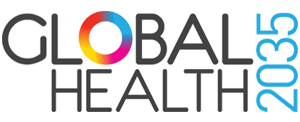September 24, 2014
New York, NY - On September 22, 2014, Kenyan President Uhuru Kenyatta hosted the “Domestic Financing for Health: Invest to Save” event at the United Nations General Assembly in New York. Panelists, including two Global Health 2035 Commissioners, Agnes Binagwaho, Rwanda’s Minister of Health, and Lawrence Summers, Professor of Economics and President Emeritus of Harvard University, made the compelling argument that increased domestic financing of health will not only lead to better health outcomes, but also economic gains. Investing in health now, explained the Commissioners, leads to long-term economic savings and growth. Binagwaho used her home country as an example stating that reproductive health programs contributed to 9% of economic growth over the past year in Rwanda.
The panel also stressed the need for local and global partnerships to improve health and stimulate economic growth. Professor Summers stated that the financing and technology exists to make significant reductions in mortality, ultimately leading to a “grand convergence” in health. He also argued that it is feasible to cover the cost of a “grand convergence” domestically. “Just 1% of economic growth [in low- and middle-income countries] over the next two decades would fund the grand convergence”, said Summers. “The global community must support poorer countries and spearhead the search for new technologies.”
During the event President Kenyatta likened health financing to a crisis situation in which low- and middle-income countries depend on short-term external assistance, failing to develop a permanent solution. He urged African leaders to increase domestic investments in health arguing that, “lasting solutions must be borne out of the efforts and the resources that are produced out of the African continent.” The Kenyan President continued by calling on African leaders to view health as any other economic indicator, and to invest accordingly.
There is a window of opportunity for governments to invest in domestic health, and for the global community to continue providing support in the form of global public goods. Event panelists also included Tumusiime Rhoda Peace, the Commissioner for Rural Economy and Agriculture at the African Union, and Dr. Mark Dybul, Executive Director of the Global Fund. Heads of State from Madagascar, Malawi, Seychelles and Ethiopia were in attendance, as well as delegates from Egypt, the Czech Republic, Botswana, South Sudan, Kazakhstan, New Zealand, Estonia, Israel, Switzerland, South Africa, Ireland, Liechtenstein, Slovenia, the United Arab Emirates, and Gabon. Leaders from the African Union, the United Nations Foundation, and the Global Fund to Fight AIDS, Tuberculosis and Malaria also attended the event.
